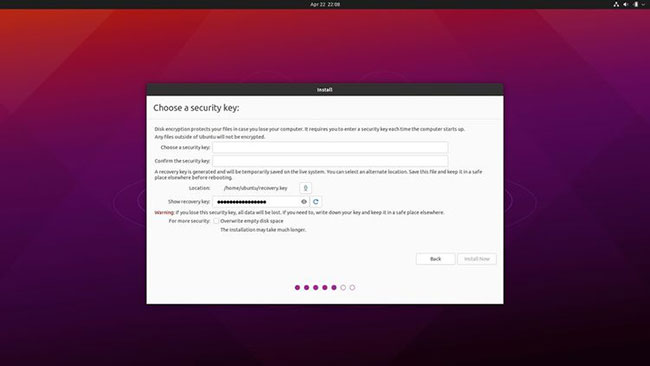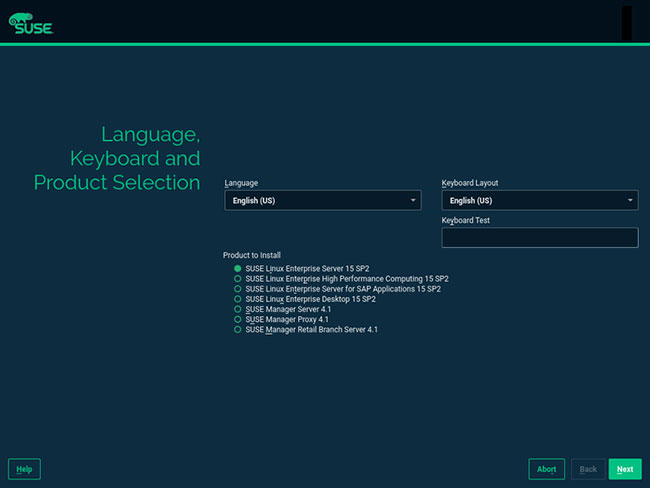7 best Linux server distributions
Linux is one of the factors driving today's growing Internet platform. In fact, more than 70% of all websites are powered by Unix, with Linux accounting for 58%. The sheer number of features offered by Linux-based distributions make them suitable for web, file and DNS servers along with enterprise infrastructure.
To help readers choose the best Linux server distributions, TipsMake would like to introduce the top 7 options available to you today.
1. Ubuntu Server

The server edition of Ubuntu offers a competitive feature set that makes it suitable for a wide range of tasks. You can use it to start a web server or file server as well as to power cloud services. The highly scalable nature of Ubuntu Server also makes it a great choice for emerging businesses.
As of this writing, the latest version is 21.04, which will be supported until January 2022. The current long-term support version for this Linux server distribution is 20.04 LTS. You can also choose from several subscription plans if you need managed services or extended support.
2. Debian

Debian is one of the greatest Linux distributions in terms of stability and ease of use. This distribution's broad hardware support makes it easy to fire up servers virtually anywhere. Furthermore, the Debian stable branch offers the best security features and package upgrades to ensure continuous uptime. This also makes consolidating your Linux servers extremely easy.
Debian offers long-term stable (LTS) releases at no charge. They provide support for 5 years. Businesses can also receive extended long-term support (ELTS) as part of the trade incentives program. This will add another 5 years of support to your business server.
3. Red Hat Enterprise Linux Server

Red Hat Enterprise Linux Server is a commercial operating system that provides exceptional scalability as well as solid security. The majority of Fortune 500 companies use it for their IT infrastructure. Red Hat's robust subscription plans make it suitable for deploying emerging technologies. You can rely on Red Hat to power bare-metal servers (dedicated servers) as well as virtual machines, containers, and cloud solutions.
LTS releases of this Linux server distribution provide up to 10 years of software support. Red Hat also offers extended lifecycle support (ELS) as part of a standard or premium subscription for customers using RHEL Server.
4. CentOS

CentOS is an enterprise-grade Linux distribution developed and maintained by the open source community. Based on Red Hat Enterprise Linux, CentOS offers what RHEL has to offer without any of the cost. You can use CentOS to power business servers as well as desktops and workstations.
One major benefit of CentOS is the infrequent package updates. This makes it easier to maintain mounted servers and reduces errors related to software updates. CentOS's strong security implementation also makes intrusion difficult. However, due to Red Hat's recent policy change, support for CentOS may end sooner than expected. Consider switching to CentOS Stream if this concerns you.
5. SUSE Linux Enterprise Server

SUSE Linux Enterprise Server (SLES) is a powerful server operating system focused on stability and ease of use. All components of this server distribution are rigorously tested before being put into use. This provides a safe and consistent system, suitable for powering future technologies.
Current LTS releases provide lifecycle support of up to 13 years. New major releases hit the market every 3 - 4 years and minor releases hit the market every year. Overall, it is suitable for businesses that need highly adaptable and secure servers for production needs.
6. Fedora Server

Fedora Server is a community-developed server distribution that makes it easy for you to use the latest software packages on your server. It has a short lifecycle, about 13 months per version. However, it offers the luxury of choosing from multiple package and module managers. This can make moving your ecosystem in the future much easier.
Fedora Server provides a stable, flexible, and globally adaptable platform for delivering everyday digital information and services, suitable for use by all types of organizations and individuals. It is based on the latest technology and thus brings the most modern environment to the users as soon as possible.
The Cockpit web-based GUI interface simplifies the server management process for beginners. Administrators can control every aspect of the server using this interface. Additionally, the inclusion of the FreeIPA identity management solution helps with risk assessment, mitigation, and policy development.
Fedora Server's bi-annual release cycle allows for the latest versions of system and application software to be introduced almost immediately. This allows users and system administrators to respond quickly to new market options as well as changing or expanding customer requirements.
7. openSUSE Leap

OpenSUSE Leap is the stable fork of openSUSE, a community-based project promoting free and open source software (FOSS). Leap has a clearly defined release methodology, rolling out new versions every year and providing security fixes. This strict release cycle helps plan server upgrades ahead of time. This is why so many enterprise servers run openSUSE Leap.
Leap is powered by SUSE Linux Enterprise (SLE), which gives Leap a level of stability unmatched by other Linux distributions, and combines that with community growth to give users, Developers and system administrators experience the best stable Linux available.
openSUSE Leap is compatible with SUSE Linux Enterprise; This gives Leap a level of stability that other Linux distributions cannot match, and gives users the ability to move to an enterprise product. openSUSE is sponsored by SUSE Software Solutions Germany GmbH and other companies. Like other Linux distributions, it was created as a community project and is available for free.
Additionally, YaST configuration manager makes server management simpler through a powerful dashboard. On the other hand, the Kiwi command line tool helps organize Linux images for enterprise purposes. This allows administrators to build business appliances for basic servers as well as virtual machines and containers.
Above are the best Linux server distributions that TipsMake wants to introduce to readers!
Hope you find the right choice for yourself!